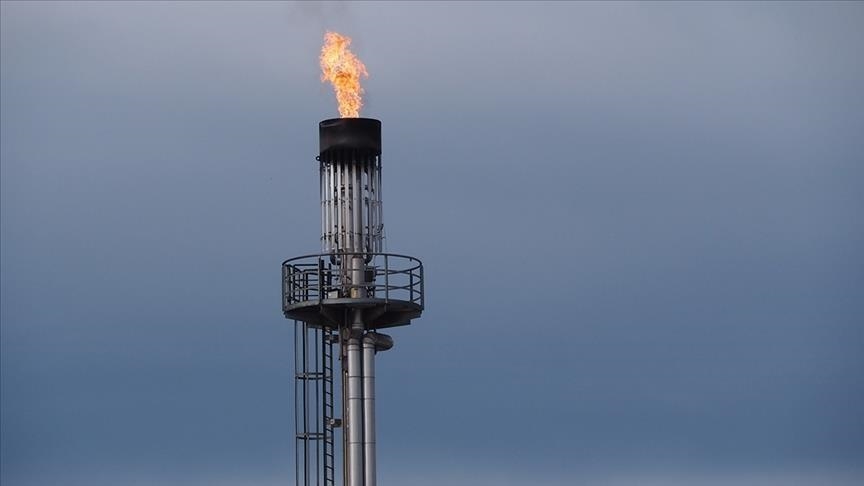Tanzania’s $30B gas scheme to propel economic development
Critical talks with foreign investors start amid rising optimism

DAR ES SALAAM, Tanzania
Talks between Tanzania and international energy firms for construction of a long-awaited liquefied natural gas (LNG) project kicked off in the northern city of Arusha this week amid optimism over the project, which is expected to put the East African country on a path of economic development and energy independence.
In the wake of the discoveries of huge oil and gas reserves more than a decade ago, some of the world’s biggest energy firms including US-based ExxonMobil, Norway’s Equinor, Pavilion and Anglo-Dutch giant Shell are jostling for investment in the lucrative sector with finite resources.
The $30 billion project backed by Equinor and Shell, which aims to feed gas from offshore blocks 1, 2 and 4 to a processing facility in the southern part of the country, has for years been dogged by regulatory delays.
The negotiations, which entail an all-important Host-Government Agreement (HGA) – a treaty between a foreign investor and a local government which governs the rights and obligations of the foreign investor and the host government with respect to the development, construction and operation of a project by the foreign investor – are expected to underpin the entire project and establish the commercial, fiscal and legal framework to ensure that the project takes off without any further delays, officials said Tuesday.
The HGA agreement negotiations have been on and off after they were initially halted in 2017 due to technicalities on the scope of work and resumed in 2018, only to come to a halt again.
President Samia Suluhu Hassan, who took office in March after the death of her predecessor John Magufuli, has expressed her commitment to fast-track the development of natural gas resources for the benefit of the nation.
Abject poverty
The East African country, whose citizens are mired in abject poverty, is frantically trying to unlock as much as $30 billion in foreign investments in the lucrative oil and gas sector at least before general elections in 2025.
However, local analysts are certain that if the project is commissioned by 2022, it is possible for the gas to only flow on stream in 2026.
With an estimated 57.7 trillion cubic feet of natural gas reserves, Tanzania also presents huge opportunities for investors in the oil and natural gas sectors and for the people to benefit from the resources.
Government officials said the sale of LNG in the international market is expected to generate huge revenues for the nation of over 62 million people which has frequently suffered deficits in its annual budgets.
In this week’s talks, a government delegation led by Energy Minister January Makamba was joined by all prospective investors in the project, which involves transporting gas from offshore fields to the town of Lindi, where a 10 million-metric-ton-per-year processing plant is set to be built.
In his opening remarks, Makamba said the government is determined to implement its largest potential investment project by tapping and selling LNG to the international market and using some for domestic purposes.
“Today I have officiated talks between the government and oil companies on the liquefied natural gas project in Lindi, which is expected to transform the image of our country’s economy,” he said.
Makamba said the project is expected to produce more than 7,000 jobs.
Shell officials declined to comment, but in an email to Anadolu Agency, Ola Morten Aanestad, spokesperson for Equinor ASA, said the company is pleased to work with the government of Tanzania on potential natural gas and LNG investment opportunities.
“We see a window of opportunity for the Tanzania LNG project, and the ability to move efficiently to complete the discussions and progress the project can create value for all partners involved and Tanzania as a nation,” Aanestad said.
Aanestad said although there is much work to be done, the company is “pleased to be engaging and framing the commercial, fiscal, regulatory and legal priorities.”
The huge natural gas reserves are expected to bring economic prosperity to Tanzania and create energy independence.
Felister Aggrey, a senior official from Tanzania Petroleum Development Corporation (TPDC), said such projects usually take years to plan, design and execute.
“This is a multi-million dollar investment. As a nation, we must clearly agree with investors to ensure that the people of Tanzania get a fair share of the resources,” she said.
Cautiously optimistic
Despite significant headwinds in the global energy sector that forced nations worldwide to re-evaluate their strategic priorities and to think critically about the future of the energy sector, local analysts in Tanzania remain cautiously optimistic.
Saidi Hassani Libonoka, an energy analyst at Helios Towers, said the LNG market is extremely competitive, which might make it hard for Tanzania to penetrate it.
“Tanzania must create and sustain a good relationship with foreign investors in order to secure the necessary financial investments,” he said.
Anadolu Agency website contains only a portion of the news stories offered to subscribers in the AA News Broadcasting System (HAS), and in summarized form. Please contact us for subscription options.



